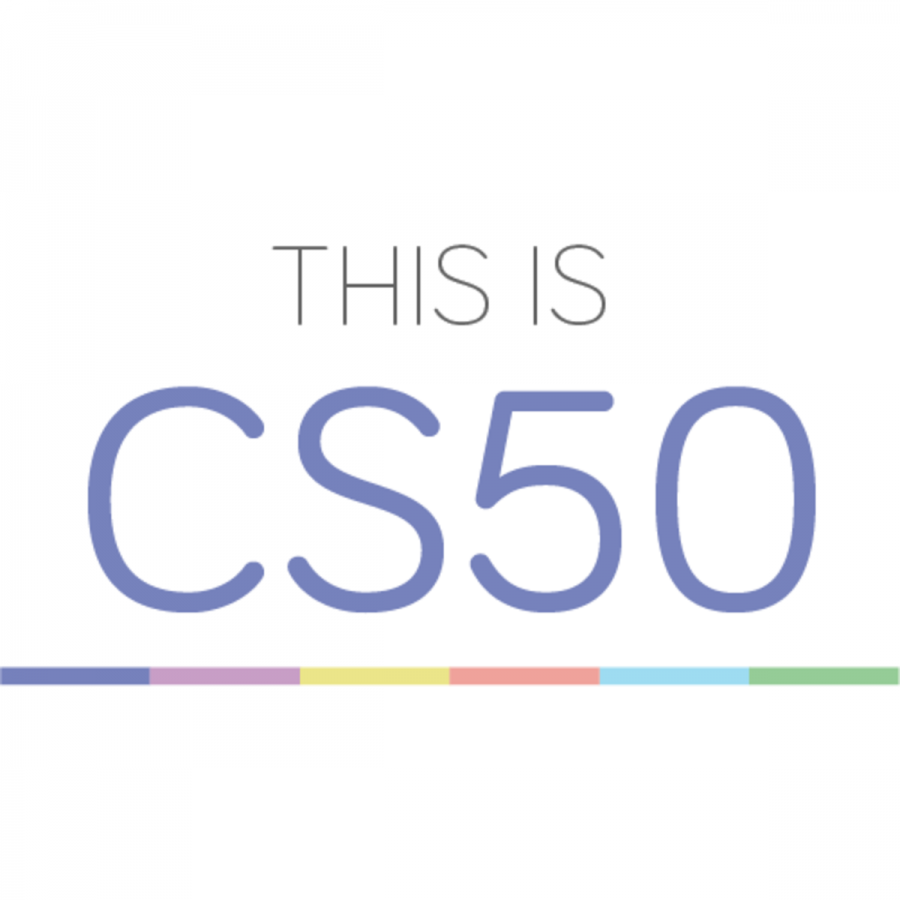By John Joy ’18, Contributor
Country Day’s Intro to Programming class is implementing a viral programming course developed by Harvard in 2005 called CS50. After an astounding 3900% enrollment increase of the course of just 9 years (from 20 to 800 students), CS50 evolved into a free online course. It is marketed as something that can turn anyone who is literate and capable of basic addition into a perfect candidate for Google’s elite team of engineers. Although no AP credit will be awarded to those who take the class, CS50 is a full-bodied, no-nonsense college course on subject that will be just as necessary as math in the near future. It is not some watered down “college level” class on the logistics of bird-watching that people take over the summer to brag about for the rest of the year.
CS50 is a radical departure from the traditional idea of how a class should operate. For example, it is possible to learn the entirety of what CS50 has to provide without even watching a single lecture. You are not encouraged to seek out teachers for help, but instead use the vast wealth of knowledge that is available online. When asked about why he implemented CS50, Mr. Marcus Twyford, the mastermind of our schools’ Computer Science and Engineering programs, had this to say: “Last year, I received an invite to come up to Harvard and take a boot camp for CS teachers to learn more about the intro class offered for Harvard students. What made me commit to the project and bring it to the Intro class here at Country Day was the tremendous energy and support behind the project and the proven track record David Malan, the course professor, has brought to the program, since 2007, and given it such national exposure through the edX.org MOOC. The new hybrid course is called CS50x and it follows the full CS50 curriculum, but in a joint project with Microsoft, the course received funding to have more resources dedicated to structuring the course to follow CS (Computer Science) Principles AP, a new course soon to be released from the College Board.”
A double-edged sword of utilizing a college level course for an intro program is the sheer amount of information covered. There is very fine balance between trimming the unnecessary fat around the edges, such as the exercises that hold little value in the real world, and absolutely butchering key building blocks of the program that will bite students in the back later. Mr. Twyford had this to say about the modifying of the program for high school students: “Though our schedules don’t match the intensive 13 week courses of Harvard, our intent is to cover the same material, with the same rigor, just at a slower pace. So, where there are two lectures and a problem set (project students code and submit for a grade) per week, our students watch the recorded lectures over two weeks at home, while I cover material in more depth during our class meetings and with more relevance to the CCDS students. We are still completing the same assignments, that CS50 calls ‘Problem Sets.’ We can cover the material in class to a greater depth as we meet 4 or five times a week and students can still come to see me outside of class.”
At the end of the day, CS50 is going to be a radical change to the Intro to Programming class and will completely change the way programming is taught. While this change is massive to Country Day, it pales in comparison to what CS50 means for the future of school as we know it. As hard as any school may try, no school can build its entire foundation around one student, but the internet can. Integrating online classes (albeit with assistance) into the classroom allows students to take classes at their own pace, cover the subject matter that means most to them, and above all else ignite the fire of curiosity that leads to people to their careers. Without online classes I wouldn’t know anything about programming, and probably wouldn’t have even thought of transferring to this school. While this is a personal example, CS50 led me to and online course on mechanical engineering which ignited a passion I never thought I had. Mr. Twyford hopes to give “students an experience that extends beyond the walls of our classroom,” but with CS50 students could get an experience beyond all of high school.
Image Source: https://cs50.harvard.edu/



